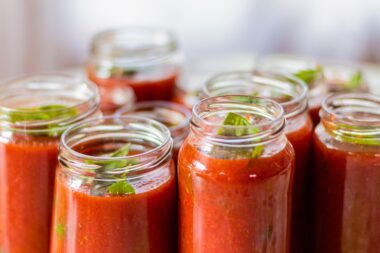Quick and Easy Homemade Puppy Food Ideas
When it comes to providing the best for our furry companions, nothing beats homemade puppy food. This way, you can control what goes into your puppy’s meal, ensuring it is nutritious, safe, and tailored to their specific needs. Start with a balance of protein, vegetables, and carbohydrates. Opt for lean meats like chicken or turkey, as they provide essential amino acids for growth. Incorporate mashed sweet potatoes or brown rice for a healthy carbohydrate source and vital vitamins. Fresh vegetables, such as carrots or peas, can add extra fiber and nutrients to your puppy’s diet. It is important to consult with your veterinarian before making any changes to your puppy’s diet, especially if they have existing health issues. Remember, variety is key to maintaining your puppy’s interest in their meals and ensuring they receive a broad spectrum of nutrients. Besides, preparing homemade meals can be more cost-effective in the long run compared to store-bought brands. A happy puppy starts with a healthy meal plan crafted just for them!
Benefits of Homemade Puppy Food
There are numerous benefits to feeding your puppy homemade food. First, you have complete control over the ingredients, allowing you to avoid preservatives, artificial flavors, and fillers common in commercial puppy foods. This means you can ensure the highest quality food for your pet. Additionally, homemade puppy meals can be custom-tailored to any dietary restrictions your puppy may have, making it easier to manage allergies or sensitivities. Cooking at home also helps to strengthen the bond you share with your puppy, as they learn to associate meals with your care and attention. Furthermore, preparing food yourself can often be more economical, especially when bulk-buying ingredients. You’ll likely discover that you can prepare larger volumes of food at a lesser cost than buying pre-packaged bags. The satisfaction of knowing you are providing wholesome and nutritious meals tailored specifically for your growing puppy is immense. Most importantly, your puppy will enjoy the taste much more than processed kibble, leading to greater meal satisfaction and enthusiasm at mealtime. Try following some easy recipes to get started!
One simple recipe for homemade puppy food involves chicken broth, brown rice, chicken, and veggies. Begin by cooking 1 cup of brown rice according to package instructions. In a large pot, bring 2 cups of low-sodium chicken broth to a gentle boil. Add 1 pound of diced chicken breast and cook until it is no longer pink. Once done, incorporate 1 cup each of carrots and peas, cooking for an additional five minutes. Finally, combine the rice with the chicken mix and let it cool before serving the delicious meal to your furry friend. This dish is rich in protein and fiber and sure to keep your little buddy full and happy. Additionally, you can modify this recipe by introducing alternative vegetables, depending on what your puppy prefers or what you have available at home. Keeping your puppy’s taste preferences in mind will encourage them to consume their meals eagerly. Always remember to consult with your vet before introducing new foods and keep an eye on any reactions your puppy may have to certain ingredients.
Vegetarian Alternatives for Puppies
If you are considering a vegetarian diet for your puppy, there are plenty of nutritious options available. Start with cooked lentils as a great protein source along with sweet potatoes for healthy carbohydrates. You can also include brown rice, quinoa, and oats as excellent carbohydrate options. The addition of vegetables like broccoli, spinach, and carrots brings vital nutrients necessary for a balanced diet. Ensure that the food is properly cooked and chopped into small pieces to avoid swallowing hazards. Incorporate essential fatty acids into their diet by mixing in flaxseed oil or fish oil, which can support skin and coat health. Make sure your vegetarian puppy diet includes a vitamin B12 source, as it plays an essential role in keeping your puppy healthy. Although some dogs may thrive on a vegetarian diet, it is crucial to monitor their health closely. Regular check-ups with the veterinarian can help you identify if they are receiving all essential nutrients. Finally, transitioning to a vegetarian diet should be gradual to avoid gastrointestinal upset. The key is to provide a variety of food to meet nutritional needs!
Another easy recipe for picky eaters involves tuna, pumpkin, and rice. Start by cooking 1 cup of rice as directed on the packaging. In a separate bowl, mix one can of tuna (in water or oil) with half a cup of pureed pumpkin and combine it with the cooked rice. Mix all the ingredients thoroughly and allow it to cool before serving. This simple dish is packed with protein and fiber and is a hit among many puppies. Pumpkin is an excellent source of vitamins and can aid digestion as well. Be sure to use plain, canned pumpkin and not the spiced pie filling. You can even freeze portions of this meal for later use. It’s a great way to make meal prep easier while ensuring your puppies have healthy meals on hand. You can also serve this meal as a topping on their regular kibble to enhance flavor and increase palatability. Puppies generally appreciate variety in their meals, and this recipe adds an appealing twist to their specific diet, making mealtime something they eagerly anticipate.
Measuring Proportions for Homemade Puppy Meals
When creating homemade food for your puppy, it’s crucial to measure portions correctly to ensure a balanced diet. As a standard guideline, puppies should consume about 3-4% of their body weight in food daily, split into two or three meals. This percentage can vary depending on factors, such as age, breed, and activity level. To determine precise portions, consult your veterinarian, who can provide tailored advice for your puppy’s dietary needs. An easy-to-use method is to include protein, carbohydrates, and vegetables in equal parts, ensuring meals are well-rounded. For example, if preparing a batch of food for a puppy that weighs 10 pounds, you’ll want to prepare meals totaling roughly 0.3-0.4 pounds of food per day. Split this into three meals, so each meal would consist of approximately 0.1-0.13 pounds of food. Consistency in meal portions helps maintain healthy weight and energy levels, supporting your puppy’s growth and development. Inviting your puppy into your cooking process can make meal preparation fun for both of you!
Lastly, be cautious when introducing new recipes. Always monitor your puppy for any negative reactions or symptoms such as vomiting or diarrhea after trying a new item. It is also wise to keep a journal of their meals to track dietary changes and preferences quickly. Focus on balanced nutrition that provides essential vitamins and minerals for optimal growth. Additionally, be sure to include a small amount of fat in their diet to help with nutrient absorption and support coat health. Fruit additives can also boost flavor and add variety. Apples and blueberries are good options and provide beneficial antioxidants. If you’re unsure about what fruits are safe for puppies to consume, there are many resources available or consult your vet. Lastly, make sure all food is prepared under proper hygiene to prevent contamination. Homemade puppy food can be rewarding but requires diligence and care to ensure meals are nutritious and safe. Explore different recipes and find what your puppy enjoys, ensuring they lead a healthy and delightful life!





